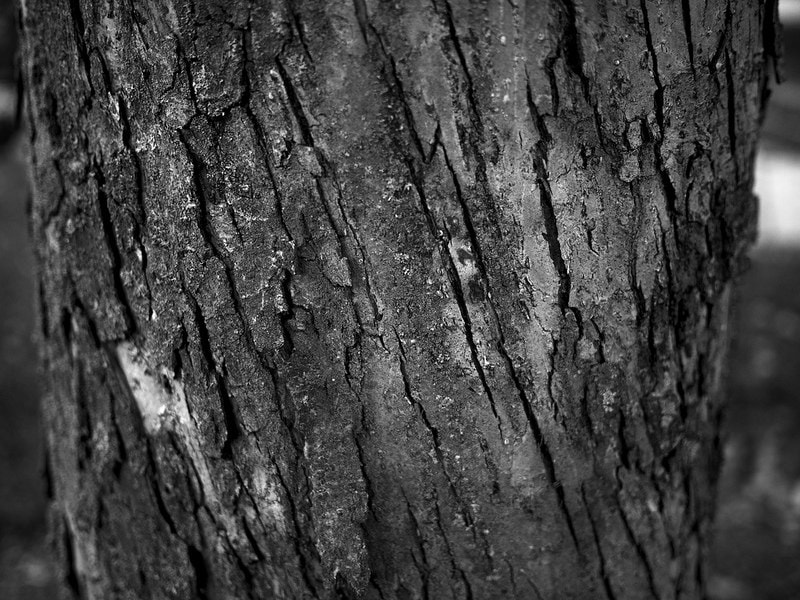- Home
- Process Worldview
- Community
- Art and Music
- Whitehead and Process Thinking
- Podcasts
- Spirituality
- Ecological Civilization
- Education
- Contact
- Social Justice
- Science
- Animals
- Sacred Poems
- Whitehead Videos
- Index of All Titles
- Practicing Process Thought
- Process Spirituality: A Spiritual Alphabet
- Recent Posts
Vulnerable to the Questions
The Role of Doubt in Faith
Teri Daily
Buddy Crawford MomentsIf we’re honest, we all have our Buddy Crawford moments—those times when the faith we have known is no longer adequate in our lives, times when we question everything what we thought we knew about God, times when we have to open our minds and hearts to a new, larger, more vibrant understanding of who God is. The Long Middle"But what about when we are confronted with the fact that God as we understand God is too small for our experience, or doesn’t explain the reality of life around us, or no longer resonates with the truth that lies in the core of our being? We may have inspiring, dramatic stories about the beginning and end of a life of faith, but what about that long middle that lies between the two?" The Blank WallA dynamic life of faith, one in which we continually seek God, is bound to be marked by crises of faith, by a series of Holy Saturdays. But if we are in a place of exile, of Holy Saturday, of a blank wall in the middle of a life of faith, what we hear in Jeremiah’s words is the promise that God will meet us on the other side—a new understanding written in our hearts, more intimate and more real than before. Vulnerable to the QuestionsNext Sunday we will begin our journey through Holy Week. We can enter it with all of our preconceived ideas of God rigidly in place, closed to any new experiences and the discomfort those might bring. Or we can walk that path with an open heart, vulnerable to the questions and the events and the crises that will inevitably meet us. If Jeremiah tells us anything about the way God works, it’s that we can live this and all other journeys fully, trusting God to meet us on the other side with a resurrected faith. |
Lauren Winner is an Episcopal priest, religion professor, and writer who compares her own crisis of faith to that of the character Buddy Crawford in Jane Smiley’s book Horse Heaven. Winner tells the story this way:
Jane Smiley’s novel Horse Heaven was published in 2000, about three years after I left the Judaism in which I had grown up and was baptized in the Anglican church… [O]ne small section of Horse Heaven spoke to me with a force I had mostly felt only when reading liturgy or poetry or epitaphs. Here, Smiley is writing about a horse trainer named Buddy Crawford. He gets born again and he’s all fired up and then one night he is praying and he sits down on the bed and he looks “up to the full moon, in whose region he imagines Jesus to be,” and then he begins to talk to his Lord and Savior. “Okay. Here’s the deal,” Buddy Crawford says. “I thought I was saved. That’s what was advertised. I would accept you as my personal savior, and there you were. And, you know, I felt it, too. I felt saved and everything… But I find out all the time that I’ve got to keep getting saved. Am I saved? Am I not saved? What do I do now? … Are you talking to me? Are you not talking to me? Am I good? Am I a sinner? Still a sinner?” And then he bursts into tears. His wife comes into the room, gets undressed, and asks Buddy what has made him cry. “When the Lord came into me,” Buddy tells her, “it was such a good feeling. I thought, Well, I can do anything because of this feeling, but then there was all this stuff to do and to think about, and I don’t remember the feeling all that well.” It seemed to me that I was reading my own tea leaves when I read those Jane Smiley words. I had not yet had any such experience, any shaking failure of memory, any overpowering uncertainty about whether anything I thought I believed about God was actually true. I was still secure in the grip of certainties, many of them: that Jesus was real, that he was God, that he had come to me in a dream; that God was intimately involved in the particulars of my life; that my days would and should revolve around the institution where people went to meet and get to know and worship this Jesus, that is, the church; that God had saved me; that God was saving me still. But lying there reading Jane Smiley’s fiction on the hand-me-down futon in my small grad-school garret in Manhattan’s Morningside Heights…I knew that one day, I would sit by Buddy Crawford’s side. (1) Lauren Winner reminds us that we have in our religious tradition (like in all religious traditions) lots of stories about conversion—about what got us to walk the aisle to the baptismal font or to the altar rail or even just to coffee hour. But what about when we are confronted with the fact that God as we understand God is too small for our experience, or doesn’t explain the reality of life around us, or no longer resonates with the truth that lies in the core of our being? We may have inspiring, dramatic stories about the beginning and end of a life of faith, but what about that long middle that lies between the two? For Winner, the glow of her own conversion faded with two events—the death of her mother and the break-up of her marriage. I’m not sure when exactly after her deliverance from Egypt Israel’s own disillusionment first appeared. Truth be told, it seems the shine began to grow dim after only a few steps into the wilderness. By the time of Jeremiah’s words in today’s Old Testament reading, Israel’s faith must surely have been in full-blown crisis mode. As Jeremiah speaks these words to the people of Israel, their temple lies in ruins and their king along with many elite citizens of Judah has been carried off to Babylon. The two most visible signs of Israel’s covenant with God—the temple and the monarchy—are no more. What tangible reminder is left of Israel’s faith? Everything Israel has believed must be in question, at least at some level. This is her Buddy Crawford moment. Into this crisis of faith come the words of Jeremiah: “The days are surely coming, says the Lord, when I will make a new covenant with the house of Israel and the house of Judah…I will put my law within them, and I will write it on their hearts; and I will be their God, and they shall be my people. No longer shall they teach one another, or say to each other ‘Know the Lord,’ for they shall all know me.” It’s one of the most beautiful depictions of transformation that we see in the bible. Christians have often interpreted this passage to be talking about Jesus, but it’s important to remember the context in which these words occur. The promise of a new covenant comes also with a promise to rebuild Jerusalem and to gather the people of Israel. It is not a promise to some new group of people in a distant future, but to these people who find themselves in exile and the two largest symbols of their faith in shambles. It is to these people that God promises a new covenant, a new relationship, a new understanding. And precisely because it is a promise to these people about their ongoing relationship with God, it has meaning for all people who encounter a crisis of faith. (2) If we’re honest, we all have our Buddy Crawford moments—those times when the faith we have known is no longer adequate in our lives, times when we question everything what we thought we knew about God, times when we have to open our minds and hearts to a new, larger, more vibrant understanding of who God is. God is always greater than our understanding of God. And so anytime we grow complacent and settle down with our certainties held close to our chest, our concept of God wrapped up neatly in a box with a bow on it, you can rest assured that something will come along and burst that box at its seams. Maybe that’s why, after writing more than three thousand pages of his famous exploration of theology known as the Summa Thelogica, Thomas Aquinas said this following a revelation he received during mass: “All that I have written appears as so much straw after the things that have been revealed to me.” Maybe that’s why St. Francis is said to have told a friar toward the end of his rich life of ministry: “Let us begin again, for up until now we have done nothing.” Perhaps this is what lies behind Lucy’s observation in C.S. Lewis’ Chronicles of Narnia that each time she sees Aslan the Lion, he is bigger than she remembers. A dynamic life of faith, one in which we continually seek God, is bound to be marked by crises of faith, by a series of Holy Saturdays. But if we are in a place of exile, of Holy Saturday, of a blank wall in the middle of a life of faith, what we hear in Jeremiah’s words is the promise that God will meet us on the other side—a new understanding written in our hearts, more intimate and more real than before. It is this faith in God’s faithfulness that makes all our uncertainties bearable. As Lauren Winner writes: Sometimes, in the days when I felt furthest away from God, I thought that my goal was to recover the kind of spiritual life I had once had, to get back to that glory road. Increasingly, I understand that I don’t get to go back (increasingly, I don’t want to). I am living in a place, a house, a room, and I begin to understand that something will show up in this room, and what shows up will be faith. I am less certain now than I was ten years ago, fifteen years ago; but I sense this place is certain; it is sure. (3) Next Sunday we will begin our journey through Holy Week. We can enter it with all of our preconceived ideas of God rigidly in place, closed to any new experiences and the discomfort those might bring. Or we can walk that path with an open heart, vulnerable to the questions and the events and the crises that will inevitably meet us. If Jeremiah tells us anything about the way God works, it’s that we can live this and all other journeys fully, trusting God to meet us on the other side with a resurrected faith. 1. Lauren F. Winner, Still: Notes on a Mid-Faith Crisis (New York: HarperCollins, 2012) ix-xi. 2. I’m grateful to Terence Fretheim for this reminder in his commentary on Jeremiah 31:31-34 at the Working Preacher webpage (link) 3. Winner, xvii-xviii |




